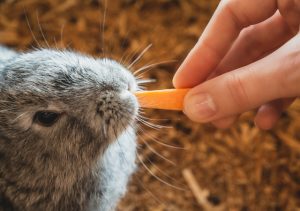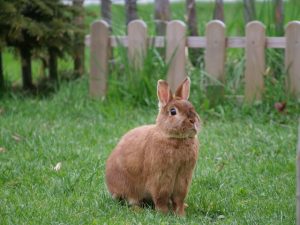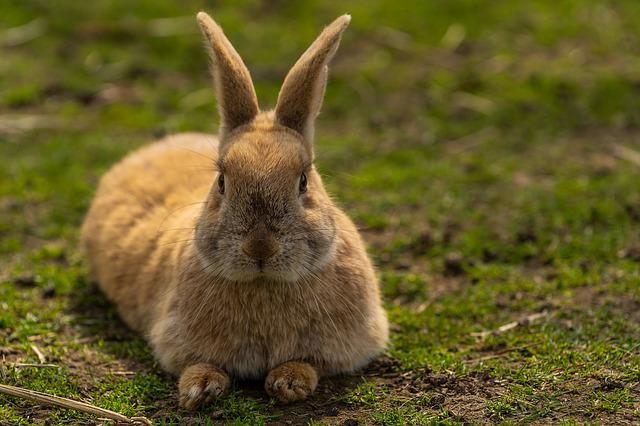
We live in a world of misinformation. It is so easy to be misinformed and misled.
Contents
One of the most common misconceptions we hear about are rabbits being omnivores.
And one of the most common reasons people give for not having a rabbit as a pet is because they think rabbits eat meat.
But are rabbits omnivores? If you have ever doubted yourself or been misled, this article will make it clear to you once and for all that they are herbivores - feeding primarily on plants and vegetables.
What Is An Omnivore?
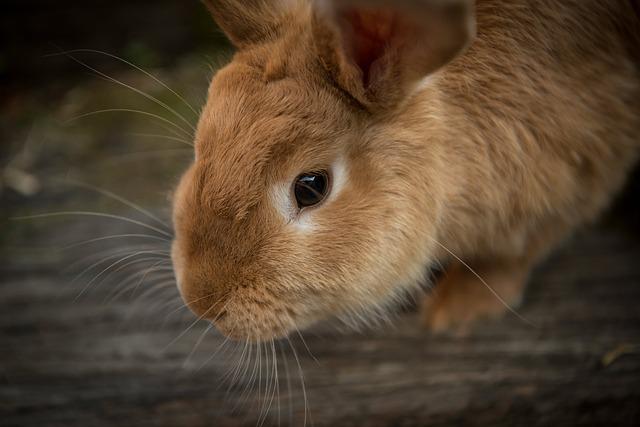
A carnivore eats meat, fruits, and vegetables. A herbivore only eats plants and an omnivore eats both plants and animals. We can see that rabbits do not eat meat therefore they are herbivores. They may eat some insects if they are in the wild but it is a very small portion of their diet.
If you live in a place where there are lots of mosquitoes or flies, you can use a fly spray made especially for rabbits to make it easier for them to eat these insects without being bothered by them or ingesting them accidentally when grazing on other plants. They may also eat some grass if there is a high supply of it (camellia greens and alfalfa would be an option), but again this would be a very small part of their diet.
Are Rabbits Omnivores?
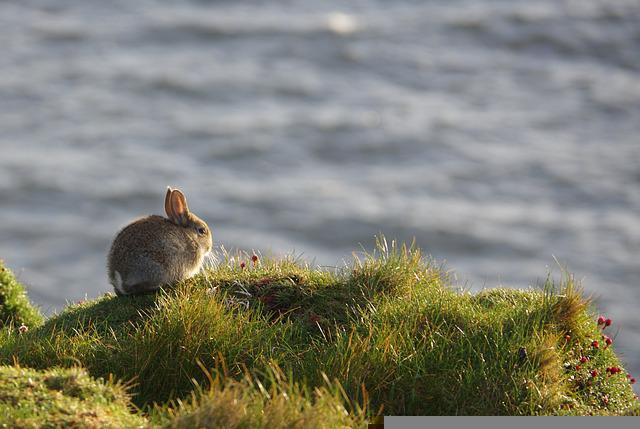
Rabbits are grazing animals. So in order for them to ensure that they get a good balance of nutrients, they need to eat a variety of greens, vegetables, and grasses. In this way, they get an adequate amount of roughage which is necessary for their digestive system and their teeth.
How Much Food Should A Rabbit Consume Throughout The Day?
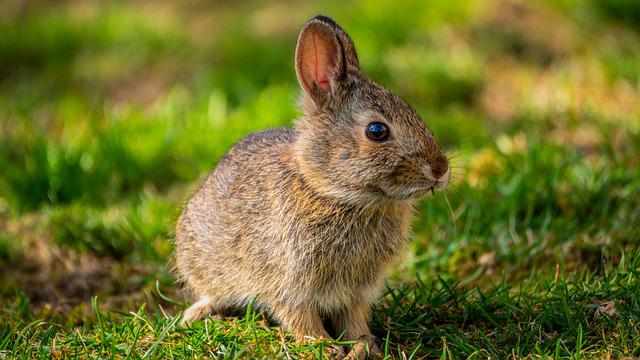
The average wild rabbit eats around 8 pounds (3.6kg) of food per day and the domestic rabbit eats about ¾ to 1 pound (340 - 450 grams) per day. There is something else we need to take into consideration - the size of rabbits affects the amount that can be eaten in one sitting.
Rabbits eat slowly to moderate speed. A rabbit cannot eat quickly and still be able to chew properly and digest its food as fast as needed. Their digestive systems are not like a dog or a cat's which can digest food quickly and then go for a walk before their stomach is full. They need to have time to chew all the food before swallowing it down.
The average domestic rabbit will eat about ¾ to 1 pound (340 - 450 grams) per day. This is slightly smaller than the average wild rabbit will eat but still enough to keep them healthy and happy.
If you do feed your rabbit a larger amount, you may find that your rabbit becomes a little obese and needs to be put on a diet to lose weight but this is quite easy to do. You can add more foraging for greens, vegetables, and grasses or feed less of them. And remember, it is always better to feed them less than more so that they won't become overweight or obese.
How To Check If Your Rabbit Is Healthy?
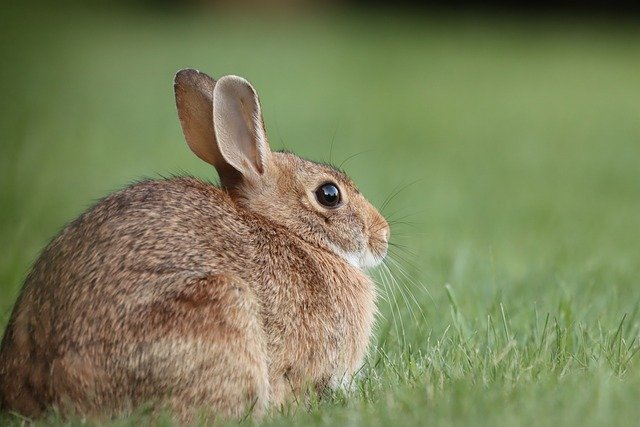
Your rabbit’s teeth will tell you everything you need to know. Their incisors are used for cutting food that they graze on while their molars are used for grinding up the food they have cut. One reason why a rabbit may not have enough of their teeth is that they are unable to chew properly on the foods they eat.
This will result in increased gas and bad breath (bunyip) and can also cause suffering if their teeth are hurting due to all the soft food they are chewing, which is what happens with a lot of rabbits. If you can't tell if your rabbit's teeth are in good condition, you can give them a good brushing once or twice a week and see how it goes.
If it gets too bad, you can take them to the vet and he/she will be able to explain whether they need to be fixed themselves or if they need to be removed by a veterinarian. If you have problems with your rabbit's teeth or they aren't growing that well, you can try feeding them a different type of food such as hay or pellets. If this doesn't help, you will need to take them to the vet, and they will be able to give you the best advice on what is best for your rabbit.
What Should The Diet Of A Rabbit Consist Of?
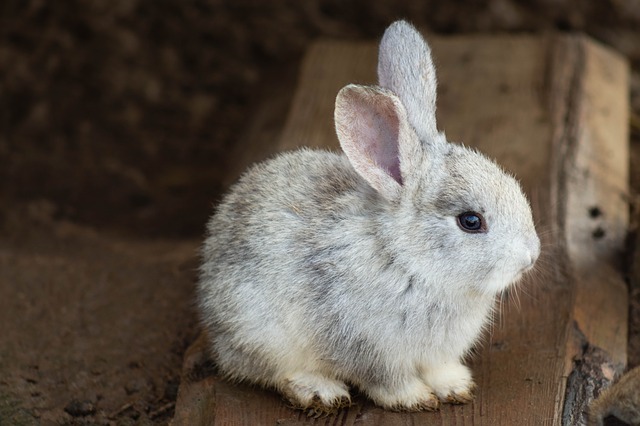
A good diet consists of both fresh grass and green foods such as some greens like romaine lettuce and spinach, parsley, dandelion leaves, and endive leaves. You can also feed them grass hays and pellets (such as haylage).
It is also a very good idea to include some extra vitamins and minerals into your diet. Some herbs can also help, such as cat thyme, lemon balm, and other leafy herbs which are rich in calcium. But remember that too much of anything is bad for you so it's best to follow your rabbit's needs and do not try to feed a rabbit too much of one thing or the other.
Rabbits are not just cute cuddly pets that you can pick up and put down. These animals rely on their owner to supply them with the proper diet in order to avoid health problems that are potentially fatal.
Hay
The first rule of feeding your bunny is to feed them hay, these guys eat it all day long so they need access at all mealtimes. Hay provides nutrients like B vitamins and fibre which will keep your rabbit healthy for years to come. Change it daily and keep it free of mould and dust.
Fresh Vegetables
The second thing they need is a diet of fresh vegetables. Contrary to popular belief, rabbits don't eat a lot of vegetables, they only need a cup once or twice a week. Try to go with leafy greens like kale and parsley or root vegetables like carrots and beets. Fruit is also fine but in small amounts as it tends to have more sugar than vegetables do.
Quantity
You can begin introducing these foods when your rabbit is about 8 weeks old, mix them in with their regular treats (i.e.: hay) and make sure that they are eating from both the vegetable bowl and their regular food bowl so there is no competition for the food. You should slowly start to reduce the amount you feed them over time.
Exercise
We recommend giving your rabbit exercise every day. Rabbits are a lot of fun to watch and interact with during playtime, but this also helps them avoid obesity which can lead to an early death for your pet.
You can use a simple playpen for your bunny so it can go in and out as it pleases, or you could buy your rabbit some wooden gym equipment (like the one pictured above) that you can hang on their cage to help keep them active. Make sure they have a place where they can get away from it when they need to.
Leafy Vegetables
If you are going to give them high fibre (leafy) vegetables, make sure that they don't have too sharp edges or pieces that can be chewed up and swallowed down the wrong way. This is obviously a very serious problem, as they can choke or get pieces lodged in the throat and die.
While some vegetables will have already been chopped up a little bit, there is still a high risk they can be chewed up further. If you are going to give them vegetables, it's recommended that you give them vegetables that are smaller in size, such as alfalfa hay rather than leafy vegetables.
You can also feed your rabbit leaves from other plants with trace amounts of fibre and make sure it doesn't have any sharp edges or broken pieces in them. If your rabbit is seen chewing on bark, dig at the root of a tree with a knife and cut off big pieces of the bark, or find the biggest part of it with a knife and cut that out too.
This is why they do this - they love to chew on things. If you haven't got anything suitable to give them to chew on, it's best not to let them have access to everything else that you have. If you have a young rabbit that has been eating cardboard or similar products, make sure their teeth are in good shape because if they aren't, there could be problems ahead for them.
To Conclude
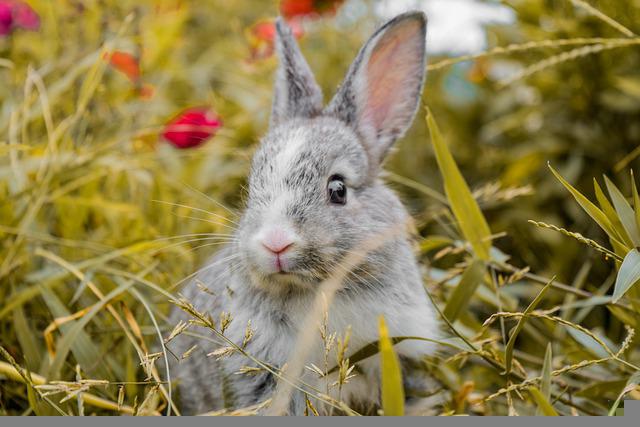
We are often misled to believe that rabbits are omnivores. However, they do not eat meat therefore they are not omnivores. In fact, rabbits are herbivores, feeding primarily on plants and vegetables. They do eat some insects but only if they live in the wild, and this is a very small part of their diet.


